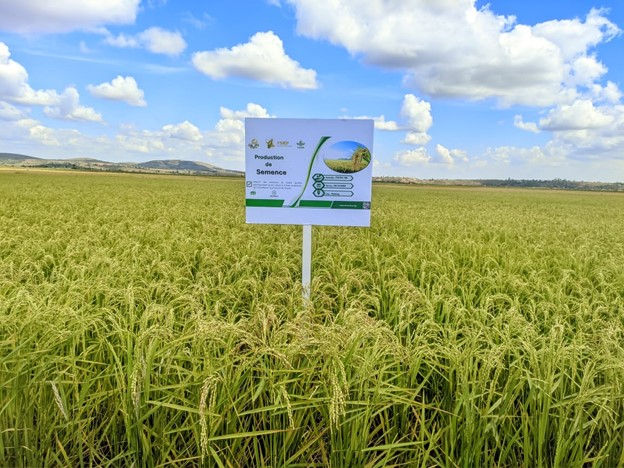Madagascar: From Agricultural Research to Action – INRAPE Comoros Draws Inspiration from FSRP’s Early Advances
- Jul 3, 2025
- 2 min read

Antananarivo, May 21, 2025 – A pivotal moment for agricultural transformation in Eastern Africa: Madagascar hosted an experience-sharing event on the first innovations from the Food Systems Resilience Program (FSRP), attended by Dr. Abdou Azali Hamza, Director General of the National Institute for Agricultural, Fisheries, and Environmental Research (INRAPE) of Comoros. This meeting marks a new phase in disseminating agricultural innovations and fostering regional cooperation around sustainable solutions to climate challenges.
Funded by the World Bank, the FSRP is an ambitious regional initiative implemented in several African countries, including Madagascar and Comoros. Its goal is to enhance productivity, strengthen food system resilience, and promote climate-smart agricultural technologies. Agricultural research plays a central role by providing concrete solutions to environmental shocks, such as resilient crop varieties, sustainable natural resource management, and combating soil degradation, among others.
In June 2024, FSRP-Madagascar and CGIAR centers, including the Africa Rice Center (AfricaRice), signed a strategic collaboration agreement to accelerate food system transformation. Coordinated by AfricaRice, this partnership brings together national institutions like FOFIFA, FIFAMANOR, SOC, and CFFAMMA, as well as CGIAR centers such as IITA, CIP, ICRISAT, ILRI, and the Alliance of Bioversity & CIAT. This synergy is already yielding results: initial field agricultural experiments were shared with stakeholders during the May 21, 2025 event.
Discussions largely focused on Madagascar’s seed system, which remains hindered by the lack of a clear national policy and insufficient local data on seed needs. Proposed solutions include strengthening quality seed production with support from local informants, formalizing seed sector structures, and gradually replacing obsolete varieties with more resilient ones. Effective adoption of these innovations relies on active engagement from beneficiaries through participatory models of research, demonstration, and field-based outreach.

The participation of Dr. Abdou Azali Hamza provided comparative insights. He highlighted similarities between Madagascar and Comoros while noting that Comorian farmers are more open to adopting new varieties. He also emphasized the importance of strengthening participatory action research based on reliable, locally adapted primary data. The need to assess post-outreach profitability of innovations was underscored, as was the relevance of Farmer Field Schools (FFS) to support producers hesitant due to economic risks.
This meeting underscores the strategic role of AfricaRice and its partners in co-building resilient, innovative, and locally adapted agricultural systems. Through the FSRP, applied research is becoming a key lever for sustainably transforming Africa’s food systems.












Comments